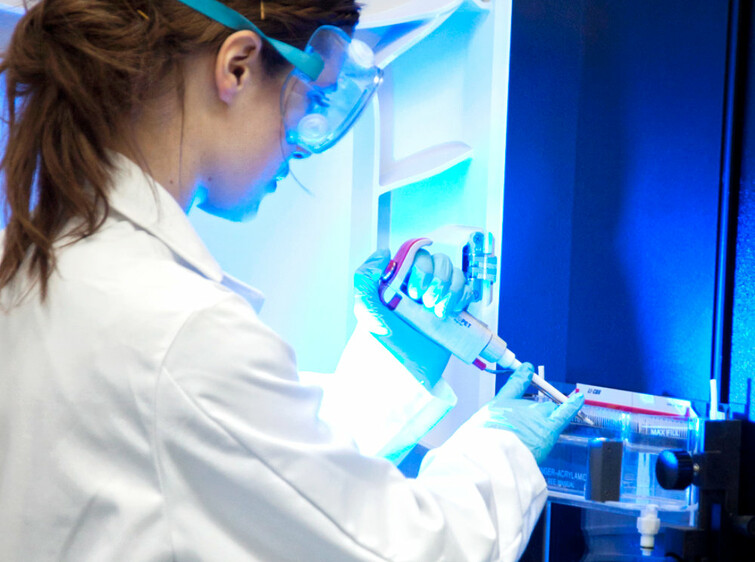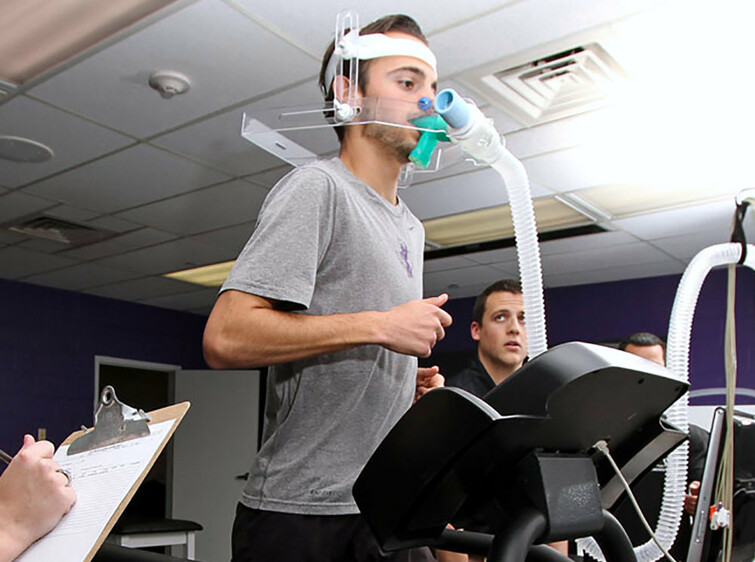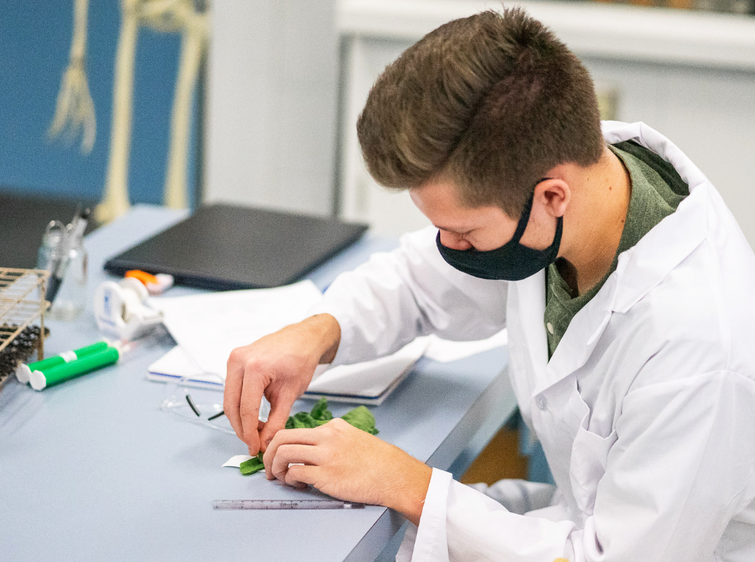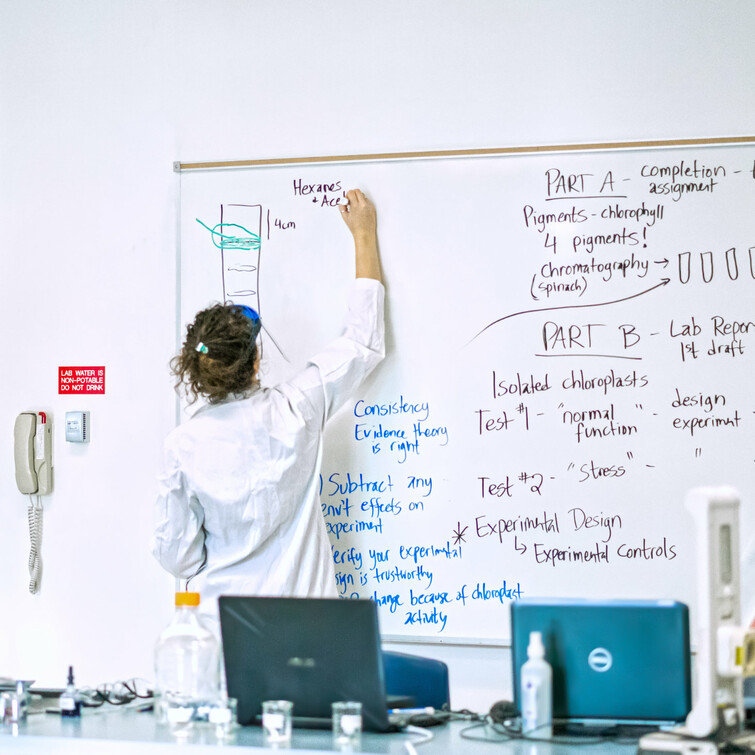
Project highlights
- 2024 construction start
- 40,000 square-foot expansion of our science facility
- New labs and classrooms for research and learning, including new facilities for the health sciences
- Two new science programs
- Room to accommodate a projected doubling of students in the natural, health and social sciences over the next ten years
Providing space for exciting new opportunities



New facilities for teaching and learning
|
|
Building on a legacy of excellence
From the very first biology courses offered at the university in 1979, academic quality has been a core priority for science education at The King's University. Since then, King's has developed numerous programs across the sciences and undergraduate research is a particular strength of the science programs at King's. Faculty are active scholars and intentionally build in opportunities for student involvement.
Natural and Social Science Disciplines at King's
|
|
Recent faculty research involving undergraduates
Dawe, D.A., Peters, V.S., and Flannigan, M.D. 2020. Post-fire regeneration of endangered limber pine (Pinus flexilis) at the northern extent of its range, Forest Ecology and Management 457(2020) 117725:1-12.
Maniraguha, L. & Looy, H. (2020). Animal-assisted therapy: A scoping review of outcome research and clinical standards. Research report for The Canadian Foundation for Animal Assisted Support Services.
Brosseau, D. C., Rogers, L., Tulloch, S., Waldbauer, C., & Ferber, M. (2020, June). Student perspectives on barriers to postsecondary support services. Paper presented at the virtual meeting of the Canadian Psychological Association (CPA)
A. Britton and L.A. Martin-Visscher. Analysis of the gene cluster encoding the two-peptide bacteriocin CbnXY. Undergraduate Research in Science Conference of Alberta, Virtual (Zoom), 2020

Expanding our partnerships and collaborations
King's commitment to good relationships with community, industry and academic partners will be further prioritized through the Centre for Excellence in the Sciences and existing programs like Community Engaged Research and King's Centre for Visualization in Science.
Below is a partial list of affiliations, partnerships, memberships, directorships, advisories and networks where King’s faculty and staff serve in an official capacity:
